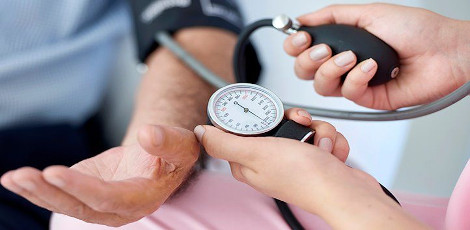What is sleep deprivation and how to treat it right?
Posted on: 10/May/2019 10:48:58 AM

Does it feel foggy during most of the daytime? If you are nodding, it may be that you are deprived of sleep. It is a very common problem to face sleep issues as there are a lot of people facing the same. basically, sleep deprivation is the condition where a person gets lesser duration of sleep than needed. There are a lot of children and teenagers who experience sleep deprivation. The consequential effects of sleep deprivation are not much on older adults.
The cause
In case of sleep deprivation where the person does not get enough sleep, the reasons may be many. Usually, night shift job patterns will corner you with no other option than to hit the bed later. This will give rise to very frequent arousals during night time. Or you may wake up in the morning with a lot of problems. It may give rise to sleep apnea, or depression or other kinds of hormonal imbalances or chronic sickness. This can be easily identified with a few symptoms including mood swings without any reason, yawning, fatigue, bad mood, forgetfulness, not enough motivation to do your regular activities, no focus in your duties, no or reduced sex drive, etc.
There are several negative effects of being sleep deprived. This includes weakness in overall body immunity that in turn leads to likeliness of respiratory disorders. Overweight and diabetes are other consequences. There will be an impact created on the body’s hormone production. You will be more prone to cardiovascular disorders because of changes in testosterone levels and surge in growth hormone levels. You will also feel worried and worthless very often throughout the day. There may be more conflicts with your colleagues for no worthy reason.
What are the likely complications of sleep deprivation?
When a person is sleep deprived, it will not be able to process information like he normally does. There will be issues with memory and understanding. Weight gain, stress and depression and also hypertension along with likeliness of stroke or heart attack are some of the main consequences. Such individuals will not also have any kind of positive thought. There will be very poor intolerance and will not have any empathy for others.
How to diagnose sleep deprivation?
Doctors can understand and identify a sleep deprived person by learning their sleep pattern. for this they will perform polysomnogram or the sleep study for understanding the sleep pattern. In a sleep clinic, the affected person will be made to sleep and there will be electrodes placed on such person’s body at different points like scalp, face, etc. This is done in order to keep track of their breathing, heart rate, blood, muscle performance, brain activity, eye movements, etc.
How to treat sleep deprivation?
There are a few medications available for sleep deprivation. There are also other kinds of behavioral treatments and cognitive treatments which includes relaxation, stimulation control or CBT (cognitive behavioral therapy). These can help individuals to fall asleep.
Mindfulness training, meditation, etc. are some of the relaxation techniques. Stimulation control is one more method where a person will be trained for healthy pre-bedtime activities and have his surrounding suitable for a sound sleep. In this technique, each and every muscle will be stimulated. CBT is nothing but a kind of therapy used for treating sleep deprivation by changing a few of their behaviors. This will help the person in having better sleep.
Are you getting the right amount of sleep?
According to the National Sleep Foundation or NSF, there is certain range of hours of sleep for each and every age group. For newborns, a total of 14 to 17 hours of sleep is necessary. For babies of 4 months to 11 months age, they may sleep healthy for 12 to 15 hours. In case of toddlers of age 1 to 2 years, totally 11 to 14 hours of sleep is needed. For preschoolers, a total of 10 to 13 hours of sleep is necessary. In case of children of 6 to 13 years of age, totally 9 to 11 hours of sleep is necessary. For teenagers, about 8 to 10 hours of sleep is enough and in case of adults aging 18 to 64, about 7 to 9 hours sleep is enough. For all the people ageing beyond, 7 to 8 hours of sleep is sufficient.







